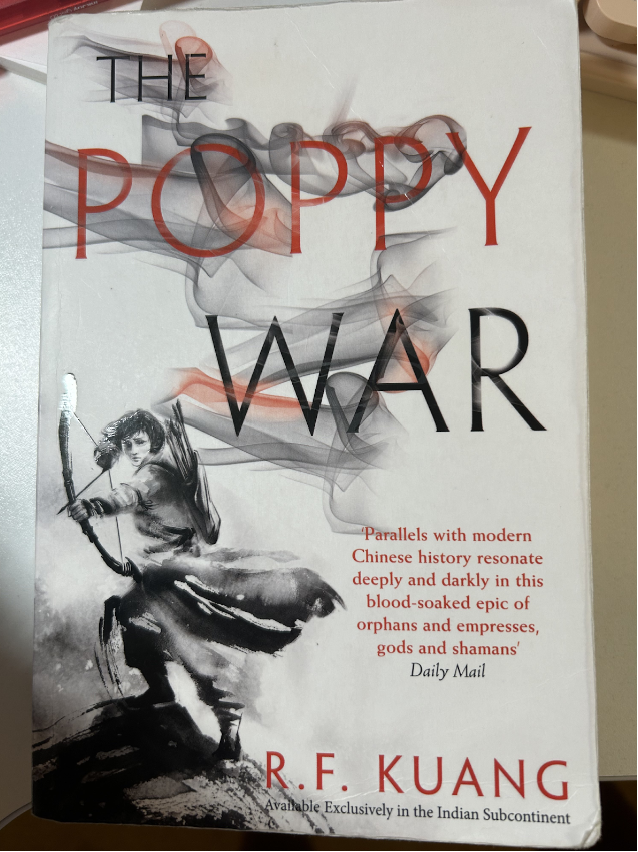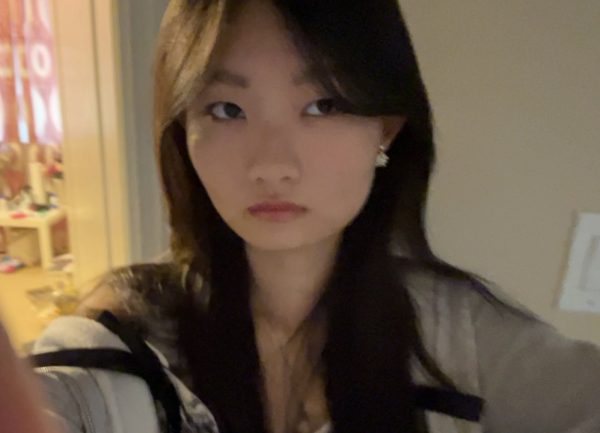“Oh, but history moved in such vicious circles.” (Kuang 612). This quote is from “The Poppy War,” author R. F. Kuang’s debut novel. The trilogy garnered large amounts of attention for the unique spin on war and magic blended with lifelike and unique characters. The first book was published in May 2018 and follows the story of an orphan girl with the power of the phoenix, Fang Runin.
“Out of ten, the first book I’d say [is] like a 6.5 maybe,” sophomore Chloe Weng said. “Second book 9.5, and third book 9. Overall [the] series I’d say [is] still a 9 out of 10. Honestly, the last two books made up for the first book.”
The “Poppy War” series spans three books: “The Poppy War,” “The Dragon Republic,” and “The Burning God.” On Goodreads, a cataloging website for books, the second book is rated the highest, at 4.38 stars out of 5, followed by the third at 4.32 and the first book at 4.18.
“I think the beginning wasn’t too slow and I think it’s a typical start for a fantasy series,” sophomore Vidya Ganesh said. “Usually it starts off small in the first [book] then goes global in the later books so I don’t know. I wasn’t bored in the beginning [and] I actually really liked the first part of the first book.”
“The Poppy War” begins with Rin taking the test for the prestigious Sinegard Academy and getting in after loads of hard work. Once in, she has to navigate a new and unfamiliar life and struggles to blend in with the privileged students of the North.
“The timing sometimes was a bit different, because sometimes it went slow and sometimes it went fast,” sophomore Ananya Sarma said. “Like, for example, when they were talking about her training with Professor Jiang, her entire timeline was accelerated by 2 years, but her first year at Sinegard was pretty slow in comparison. I guess the timeline can change, but overall, it’s pretty fast.”
At Sinegard is where she meets all the major players in the later books: Kitay, a genius scholar; her first friends, Nezha and Venka, spoiled bullies from the North; and Jiang, her mentor and a madman.
“My favorite character was Kitay,” Weng said. “I liked his character development in the second book because, in the first book, he was kind of just like this random genius. In the second book, I liked how spiteful he was and I liked his relationship with Rin.”
Although Kitay doesn’t develop romantic relationships with Rin, they’re each other’s anchors when they travel to the world of Gods and platonic soulmates. There also isn’t a heavy romance aspect in “Poppy War” though it’s largely implied that Nezha and Rin had feelings for each other.
“I think there were moments where they [Nezha and Rin] had chemistry,” Weng said. “There were moments when I thought, ‘Oh, that’s kinda sweet’ but in general, they were more enemies than lovers throughout the series. I actually kinda [kind of] like that. I think that their relationship as enemies as opposite sides of the spectrum, since they’re complete opposites of each other, is a lot more interesting than whatever romance was going on in the second book.”
The ending of the third book in the trilogy, “The Burning God” also came as a surprise to many. For instance, Weng thought that the author should have added another 50 pages to the ending.
“[The end] felt a bit rushed,” Ganesh said. “I think Rin definitely had to die and I see the allusion to the Speerlie queen and stuff but I think Rin killing herself was way too fast-paced and it didn’t build up to it enough. I think at that pace it should’ve been Kitay kill[ing] himself or Kitay kill[ing] Rin. I don’t know why Nezha was there, to be honest.”
Overall, junior Isabelle Chang calls the series a “rollercoaster.”
“I was really invested in the first book and the second book and then I was kind of sick of the constant war and death by the third book,” Chang said.









